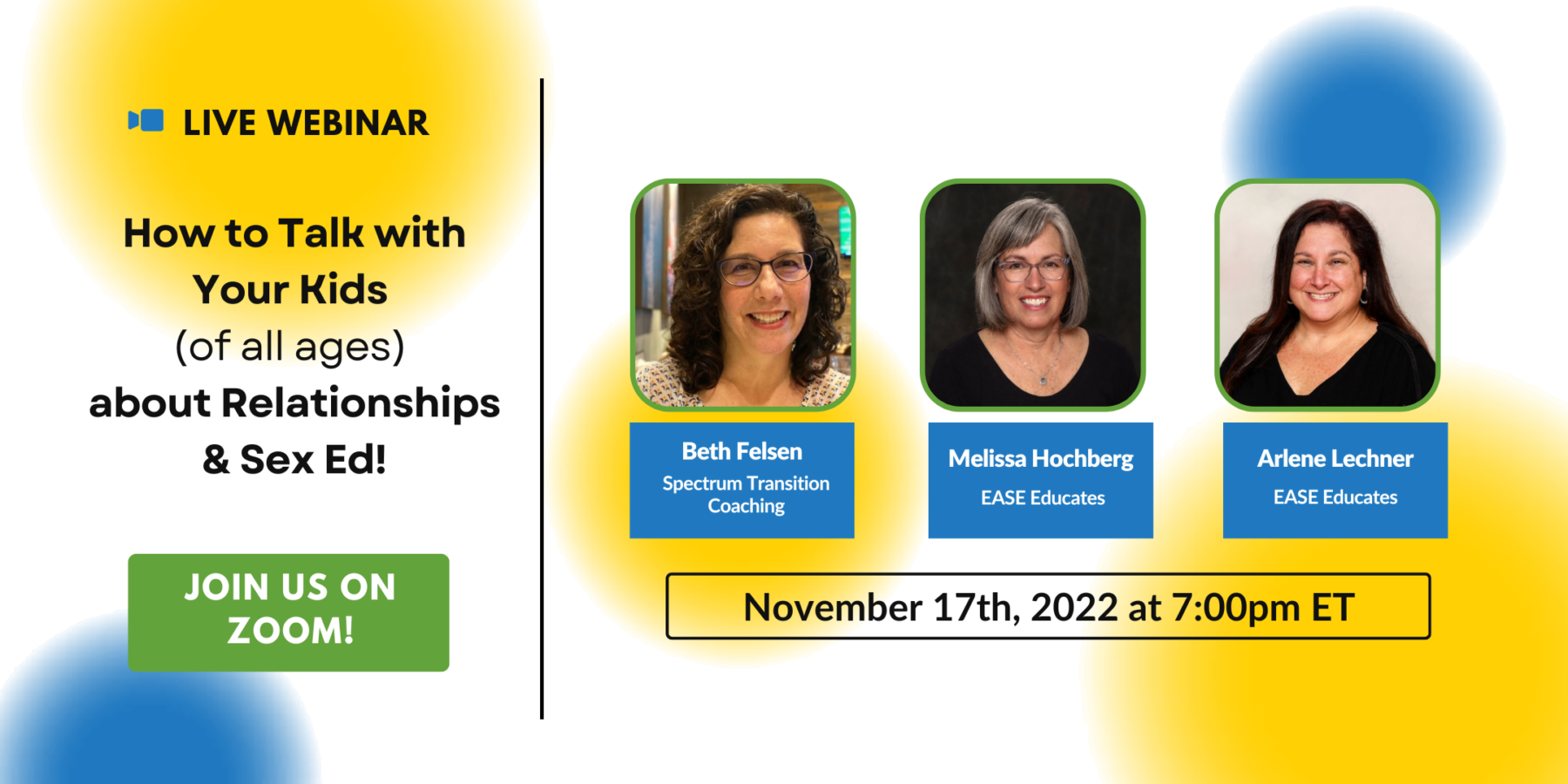Back when we found out that we were expecting a child, the first thing many of us did was run out and buy the classic “What to Expect When You’re Expecting.” The definitive pregnancy guidebook offered practical tips and advice for the unfamiliar world of pregnancy we were embarking upon.
Fast forward to 2022 and now there are an infinite number of parenting books promising to help your baby sleep through the night, eat their vegetables, develop secure attachment, read at an advanced level – and possibly even solve world hunger by preschool. Though these books have good intentions, it’s impossible to implement all their tactics and while still maintaining your sanity as a parent.
For the abundance of books with baby guidance, there’s a fraction of that research when it comes to parenting adult children. And even less for parenting adult autistic children.
I don’t aim to publish a novel here, but I do think that there are 3 helpful tips to keep top of mind as you transition from parenting an autistic child to parenting an autistic adult.

Let’s jump in:
1. Promote independence.
I think the best thing we can do for our autistic grown children is to control the impulse to protect them at all costs. Our children are often far more capable than we give them credit. Our natural, well-intentioned instinct to project and insulate them can ultimately do more harm than good.
Add the phrase “fail safely” to your vocabulary and plan to use it regularly. As our children grow into adulthood, they need to learn that it’s ok to fail and that they are able to get back up and try again.
The key is allowing for failure within safe spaces. If your autistic adult child has an important job interview tomorrow, it might not be the best time to allow them to manage getting out the door on time. But if they are meeting with friends or going to a movie, sit back and let them manage getting themselves out the door– whether that is 30 minutes early or 45 minutes late. Letting them live with the discomfort and consequences helps them to learn, grow, and ultimately make a different choice next time.
Help your grown child identify areas where they can take on more independence and potentially “fail safely.” Here’s a few practical ideas:
- In conversation: It can be scary to strike up a conversation with someone new. But it can also open doors to new friendships and opportunities. Encourage your child to find one new person today to talk to. If it goes well, that’s great social interaction practice. If not, it’s a safe failure.
- In meal preparation: Allow your grown child to take full responsibility for meals a few nights a week. Charge them with finding a recipe, making a shopping list, going to the store, and cooking the meal. You may be eating a lot of sandwiches or pasta, but you’re also teaching your child how to feed themselves.
- Among friends: Share your approach with trusted friends and family members. Let them know that you are intentionally taking a step back to allow your child to step up and manage more aspects of their lives. When you are on the same page, they are more likely to support your efforts too.
2. Foster self-advocacy.
As your child becomes an adult, you won’t be involved in as many aspects of their life. This is a positive change but can feel very unfamiliar.
You won’t be able to interview for a job with your child. This is why it is crucial that they understand what it means to be their own advocate. This may look like making their own medical appointments and leading conversations with doctors and practitioners. It may be reaching out the disability office to arrange the necessary accommodations. Or it may be practicing how to explain their diagnosis when they meet new people or develop new friendships.
Each of these opportunities to be their own advocate will be unfamiliar and may not go well. But each time, your grown child will learn a bit more about how to advocate for what they need – and that is an invaluable gift you are giving them.
3. Delegate.
Repeat after me – you do not have to be an expert in everything. And you shouldn’t have to be. The world is too vast and changing too quickly to expect any parent to manage every area of their children’s life fully.
Instead, recruit your team. Find true experts who share your values and delegate certain aspects of your grown child’s development to them. Oftentimes, having an outside party (not a parent) share information can lead to a much more receptive dialogue about the topic. Here’s a few areas with expert guidance can be incredibly useful:
- Finances: Conversations about money can be full of nuance and personal feelings. Bring in an expert to teach your grown child about how to save, budget and invest their money. This could be on an individual basis or through an online course focused on autistic adults.
- Religion: If your grown child is curious about exploring their spirituality, encourage that interest and arrange conversations with experts in faith topics. This exploration is often a part of increased independence but may be difficult as a parent if their beliefs differ from your own.
- Sex and relationships: This is often the most awkward topic to broach with your grown child. All parents feel some sort of anxiety around this topic – which is why I’m so excited to partner with the team at EASE (Empowerment, Advocacy & Sexuality Education, LLC) for our next free webinar. In November, we’ll be sharing “How to Talk with Your Kids (of all ages) About Relationships & Sex Ed” – learn more here and let this team of experts handle this one.
Learning to parent adult children is a bit like becoming a parent all over again. It’s unfamiliar territory and you often must rewire certain patterns that have worked during childhood but no longer serve your relationship. If you keep these tips in mind, I’m confident you’ll be able to enjoy your relationship with your grown autistic child.

